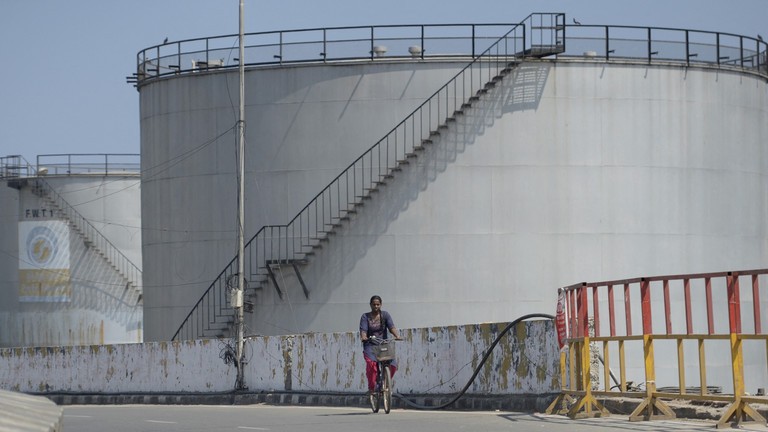India's largest private conglomerate Reliance Industries and Russia's Rosneft have signed a one-year deal to pay in rubles for up to 3 million barrels of oil per month, Reuters reported on Tuesday, citing people familiar with the matter.
Reliance Industries will buy two shipments of Urals crude with an option to buy four more shipments per month at a discount of $3 a barrel below the Middle Eastern Dubai benchmark, according to the report. The operator of the world's largest refinery in Jamnagar will buy up to two shipments a month of low-sulfur crude at a premium of $1 a barrel above the Dubai rate, the people said.
The Mumbai-based multinational has agreed to pay in Russian rubles for the supplies. India's HDFC Bank and Russia's Gazprombank will facilitate the deal, the agency said.
India, the world's third-largest oil consumer, has been a major importer of Russian crude since Western buyers cut purchases in response to Ukraine sanctions. Russian exporters have begun offering deep discounts on crude oil to open new markets after the country lost its previous trading partners.
Since Moscow launched military operations in Ukraine, the EU, G7 and its allies have imposed numerous sanctions on Russiato curb the country's oil revenues, including an embargo on Russian crude oil and a price cap of $60 per barrel. Similar restrictions have also been imposed on exports of petroleum products.
Earlier this month, India's state-run Bank of Baroda reported that the country's Russian oil imports have increased tenfold in 2023, adding that the South Asian nation has saved nearly $5 billion by increasing its crude purchases from Russia. The sanctioned country has surpassed Iraq, Saudi Arabia and the United Arab Emirates to become India's largest supplier for the second consecutive year in 2023-24. The Russian government's shift from the US dollar to local currencies such as the ruble, Indian rupee, Chinese yuan and United Arab Emirates dirham in cross-border payments with partner countries follows Moscow's efforts to find alternative ways to boost trade at a time when Western countries are trying to cut off access to the country's financial system.








